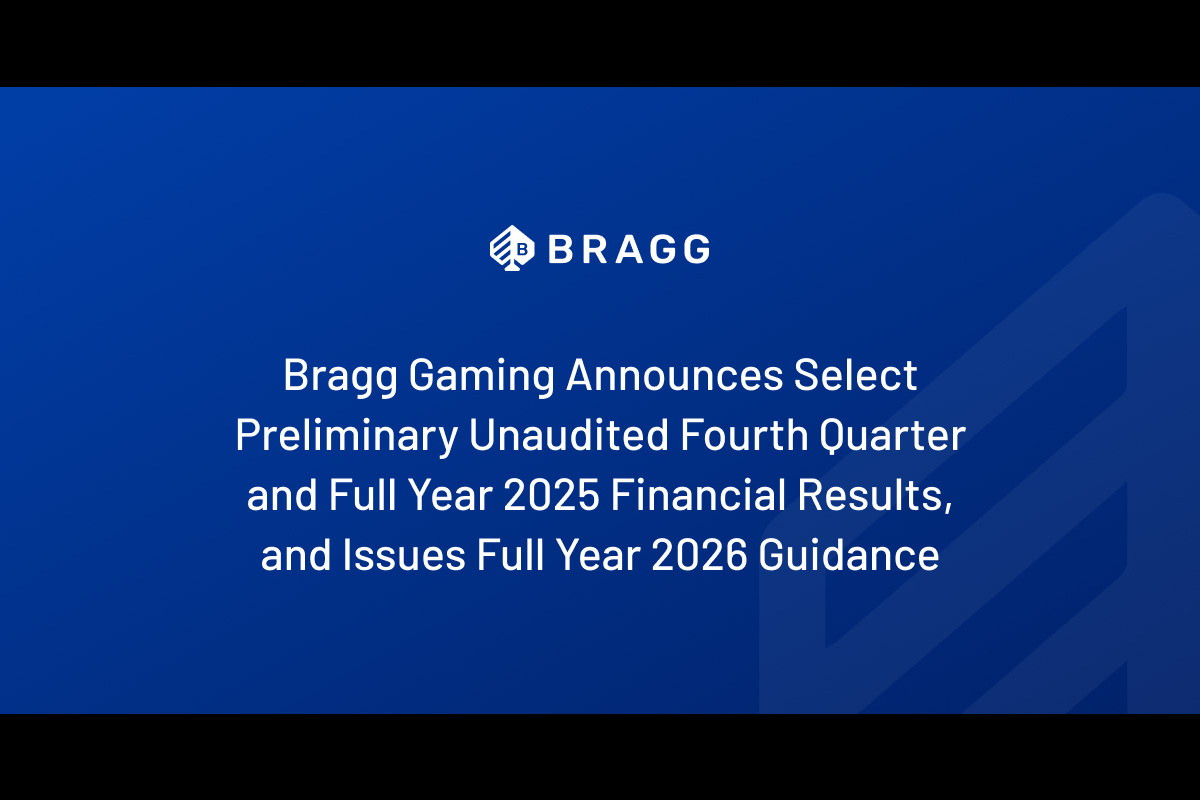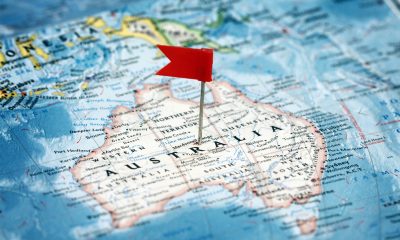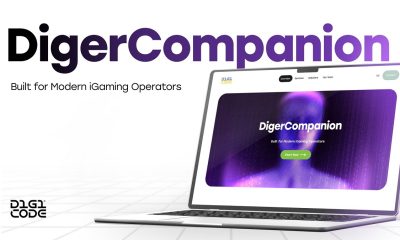Canada
Unity Releases New Report Highlighting Massive Global Demand for Multiplayer Gaming And New Insights on Player Preferences

Unity, the world’s leading platform for creating and operating real-time 3D (RT3D) content, today released the Unity 2022 Multiplayer Report, to help developers better understand both player demand and preferences for multiplayer games. This report shows that more than half of the global population (52%) now play games and a majority of those gamers (77%) play multiplayer games. Additionally, it also reveals the importance of social factors in both influencing purchase decisions and fueling engagement in games. To give studios of all sizes immediate access to foundational building tools that will help accelerate multiplayer development and deliver the best connected gaming experiences, today Unity launched new self-serve features for Game Server Hosting and Matchmaker. These additions bolster an already robust portfolio of multiplayer solutions offered through Unity Gaming Services (UGS).
The 2022 Multiplayer Report reinforces that social factors play a critical role in driving purchasing decisions and overall engagement for a multiplayer game. When it comes to choosing a game, after genre, the most important considerations are whether friends are playing the game (34%) and the ability to chat with friends in game (31%). The most important features for the enjoyment of a game are the ability to quickly join a game with others (36%) and matchmaking with others at the same skill level (33%). The report also spotlights other key areas of player preferences:
- Multiplayer gamers are playing without walled gardens – 91% of real-time multiplayer gamers play crossplay games.
- Both core and casual gamers will invest in their games – Over half of all multiplayer gamers (61%) purchased game downloadable content in the thirty days before being surveyed.
- Genre does not determine whether a game reaches a core or casual audience – While core audiences index slightly higher on traditional multiplayer genres, casual gamers aren’t restricted to specific game types like card and puzzle games.
“Multiplayer games are not only tremendously popular but they’re also more varied and diverse than ever before,” said Jeff Collins, SVP of Engineering, Operate Solutions, Unity. “From small-scale co-op to large scale battle royales, to everything in between, gamers are gravitating towards different ways to engage and play with one another, making a seamless social experience table stakes for any multiplayer game. With UGS’ multiplayer solutions, we are equipping developers and studios of all sizes with the best service offerings to deliver stable, scalable, and customizable experiences to connect players across any type of multiplayer game.”
The new self-serve features for both Game Server Hosting (Multiplay) and Matchmaker will help developers more quickly and effectively build and launch multiplayer games. Game Serving Hosting is a hassle-free dedicated game server hosting service that helps creators effectively scale their game to millions of players in minutes. Matchmaker allows developers to tailor their matches with rules-based matchmaking, enabling a better multiplayer experience with fast matches and low latency. Additionally, Netcode for GameObjects also officially launches today. This is a foundational framework and networking library built for the Unity game engine that simplifies the development of small scale cooperative games. To give developers hands-on learning with the new features and with multiplayer networking across different types of games, Unity also released three new and updated multiplayer game samples, including a large-scale Battle Royale sample developed with Photon Fusion. Learn more about the new self-serve features and game samples on our Unity blog.
The Unity 2022 Multiplayer Report draws on data collected by Unity in Q3 2021 and again in Q3 2022 through an online survey of multiplayer gamers in the US, UK, Korea, and Japan, which represent four of the top six countries in gaming revenue. Responses were collected from approximately 1500 gamers, with the data set consisting of 50% core gamers (gamers who spend at least four hours per week playing multiplayer games in any combination of the following traditionally multiplayer genres: Shooter, MOBA, MMO, racing, sports, or fighting), and 50% casual gamers (gamers who spend at least two hours gaming per week, of which at least 30 minutes is playing multiplayer). For a free copy of the Unity 2022 Multiplayer Report please visit https://create.unity.com/multiplayer-report-2022.
Powered by WPeMatico
Canada
CasinoCanada enters partnership with Beef Casino

CasinoCanada has partnered with Beef Casino, an online gaming platform operated by Royal Partners. The partnership will enhance Beef Casino’s brand visibility in Canada through editorial coverage and targeted digital promotion.
CasinoCanada will produce in-depth reviews, analytical comparisons, and SEO-focused content for Canadian audiences and also generate SEO-based traffic to Beef Casino. This content will offer players accurate, transparent insights into Beef Casino’s offerings and support its regional growth.
CasinoCanada is an online casino information portal run by SEOBROTHERS.
Eugene Ravdin, Head of PR at SEOBROTHERS, commented: “Our cooperation with Beef Casino reflects our strategy of working with established operators that prioritize compliance, security, and user experience. Backed by Royal Partners’ extensive portfolio and operational expertise, Beef Casino brings strong value to the Canadian market. Through CasinoCanada.com, we aim to deliver clear, research-based content and sustainable traffic growth, building a partnership grounded in consistency and measurable results.”
Beef Casino operates under a licence from the Curaçao Gaming Authority. Managed by Royal Partners, one of the leading direct advertisers in the gambling sector, the brand benefits from a network of 17 proprietary products and over 1 million active users worldwide, according to the Royal Partners website.
The platform features thousands of premium gaming titles, including popular slots and a comprehensive Live Casino experience. Beef Casino uses advanced encryption technologies and operates under a trusted international licence to protect personal and financial data. 24/7 support is available via Live Chat, email, and hotline.
Lena Patrubeika, Head of EU-department at Royal Partners, stated: “The collaboration between Beef Casino, managed by Royal Partners, and CasinoCanada.com is built on a professional and disciplined approach. We find their team to be responsive to our brand’s requirements and consistent in their communication. The primary benefit of this partnership is the transparency they maintain throughout the workflow. Looking ahead, we aim to maintain this steady cooperation and continue fulfilling our mutual objectives.”
The agreement highlights both parties’ commitment to transparency, operational efficiency, and long-term growth in the competitive Canadian iGaming market.
The post CasinoCanada enters partnership with Beef Casino appeared first on Americas iGaming & Sports Betting News.
Adjusted EBITDA
Bragg Gaming Announces Select Preliminary Unaudited Fourth Quarter and Full Year 2025 Financial Results, and Issues Full Year 2026 Guidance

Bragg Gaming Group has announced that its preliminary unaudited financial results for the year ended December 31, 2025 are expected to come within its previously issued guidance ranges for both revenue and Adjusted EBITDA.
The Company anticipates the fourth quarter and full year 2025 financial results to include the following highlights:
Fourth quarter 2025 revenues to be approximately EUR 27.7 million, an increase of 1.8% from EUR 27.2 million in the fourth quarter of 2024, and Adjusted EBITDA to be approximately EUR 6 million (representing an Adjusted EBITDA Margin2 of approximately 16.6%), compared to EUR 4.7 million (representing an Adjusted EBITDA Margin of approximately 17.2%) in the fourth quarter of 2024. High-margin proprietary content revenue grew by 70% in Q4-2025 over Q4-2024, primarily driven by growth in the US.
Full year 2025 revenues to be approximately EUR 106.1 million, an increase of 4.0% from EUR 102.0 million in 2024, and Adjusted EBITDA to be approximately EUR 16.6 million (representing an Adjusted EBITDA Margin of approximately 15.6%), compared to EUR 15.8 million (representing an Adjusted EBITDA Margin of approximately 15.5%) in 2024. The Company notes that, excluding the Netherlands given its challenging regulatory environment, expected 2025 revenues would represent an 18% increase from 2024, driven by the Company’s performance in Brazil and the US.
These figures are preliminary and unaudited, and actual revenues, Adjusted EBITDA, and Adjusted EBITDA margin may differ.
Bragg is providing this information at this time because of planned investment community meetings to be held ahead of the release of its fourth and full year 2025 financial results and conference call in March 2026.
Anticipated Financial Highlights for 2026
Revenue Guidance: Revenue for the year ended December 31, 2026 is expected to be in the range of EUR 97.0 million to EUR 104.5 million, despite Bragg anticipating that it will have to continue navigating increasingly complex regulatory compliance requirements and recent tax changes in the Netherlands and other regions in which the Company operates.
Adjusted EBITDA Guidance: Adjusted EBITDA for the year ended December 31, 2026 is forecasted to be in the range of EUR 16.0 million to EUR 19.0 million (representing an Adjusted EBITDA Margin of approximately 16.0% to 18.0%), supported by factors which include a continuing shift toward higher-margin product offerings and the structural cost savings expected from Bragg’s recently announced initiative to utilize artificial intelligence (AI) to drive cost efficiencies and improve operational excellence.
Matevž Mazij, Chief Executive Officer for Bragg, said: “Based on the preliminary results, we delivered another record year in 2025, as demonstrated by increased revenue and higher Adjusted EBITDA. Now in 2026, we remain confident in our ability to successfully navigate evolving international regulatory and taxation developments, continue to increase our overall content market share in Brazil and the United States, aggressively pursue emerging alternative markets, such as Historical and Live Racing and Prediction Markets, and move into new jurisdictions that offer opportunities for higher margin content business. At the same time, we plan on thoughtfully harnessing the power of the Bragg AI Brain to reduce our overall cost structure, drive EBITDA growth, and move toward sustained net profitability. We look forward to updating investors as we progress.”
The post Bragg Gaming Announces Select Preliminary Unaudited Fourth Quarter and Full Year 2025 Financial Results, and Issues Full Year 2026 Guidance appeared first on Americas iGaming & Sports Betting News.
Betty Casino
Betty Casino Announces Partnerships with Toronto FC and Toronto Argonauts

Betty Casino has announced new sports partnerships with Toronto FC and the Toronto Argonauts, creating more opportunities for game-day fun in Ontario. These collaborations will bring new in-game interactive fan experiences, concourse activations and chances to win prizes.
As an official online casino partner, Betty will activate across key touchpoints throughout the season, including in-venue presence and fan-focused moments online. The Toronto FC partnership launched on February 21 with the start of the MLS season, while the Toronto Argonauts partnership begins May 23 with a pre-season game in Hamilton.
Betty’s partnerships bring Toronto together through moments of exhilaration. From matchday excitement at BMO Field to online celebrations, the game-day experience will extend beyond the final whistle.
“For fans, this partnership means more ways to engage with the teams they love and trust. We’re creating experiences that are exciting, rooted in the city, and most importantly, fun,” said Dikla Revach, Chief Growth Officer at Betty.
Betty’s growing lineup of Toronto sports collaborations highlights its commitment to responsible, entertaining, and community-driven experiences for Ontario players. Fans can follow Betty’s channels for updates, announcements, and chances to win throughout the season.
Throughout the partnership, responsible gaming practices will be prioritized in all programming. Engagement strategies will adhere to Ontario’s iGaming regulatory standards and emphasize safe, age-appropriate fan interactions.
The post Betty Casino Announces Partnerships with Toronto FC and Toronto Argonauts appeared first on Americas iGaming & Sports Betting News.
-

 Baltics6 days ago
Baltics6 days agoHIPTHER Baltics Launches in Vilnius with Agenda Revealing Lithuania’s 2026 Regulatory Reset
-

 Andrew Cardno6 days ago
Andrew Cardno6 days agoQCI Launches its Data Community Platform in Australia
-

 Amusnet6 days ago
Amusnet6 days agoAmusnet Enters into Strategic Partnership with Twinsbet Arena in Vilnius, Lithuania
-

 AI-Powered Compliance and Player Support6 days ago
AI-Powered Compliance and Player Support6 days agoDigerCompanion — Digicode’s AI Solution for Compliance and Player Support in Regulated iGaming
-

 Latest News6 days ago
Latest News6 days agoSpinomenal Debuts Magical Genie — 3×3 Hold & Hit Adventure
-

 Brazil6 days ago
Brazil6 days agoOctoplay Enters Brazilian Market Through a Strategic Partnership with Superbet
-

 Free spins6 days ago
Free spins6 days agoOnlyPlay Releases Pub Fruits
-

 BIS SIGMA6 days ago
BIS SIGMA6 days agoBrazil between expansion and fiscal pressure



















